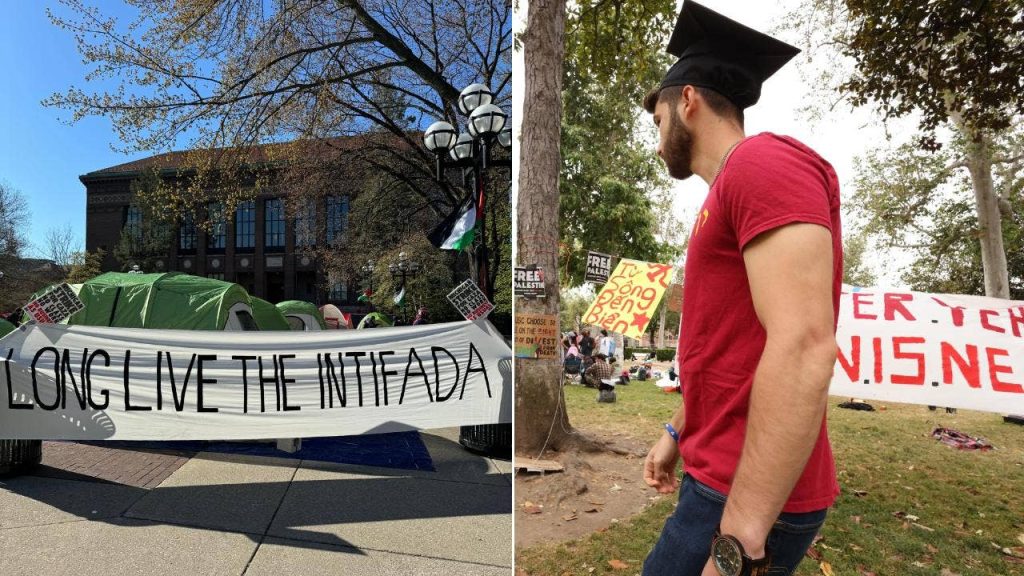In recent weeks, Jewish university undergraduate students across the country found themselves facing unexpected disruptions during their college graduation ceremonies due to anti-Israel protests. This added to the disappointment many students had already experienced after missing out on traditional high school graduation events in 2020 due to the COVID-19 pandemic. Yola Ashkenazie, a graduate of Barnard College at Columbia University, expressed her frustration with the unnecessary theatrics that marred her commencement ceremony, including a fellow graduate tearing up her diploma in protest. Ashkenazie also shared feeling intimidated by online photos of herself holding an Israeli flag. At the University of Southern California, Mark Rayant, a recent graduate, had his commencement ceremony canceled due to anti-Israel demonstrators, who took over the campus and caused security concerns.
The disruptions at graduation ceremonies were not limited to Columbia University and USC. Isabel Allard, a recent graduate from the University of Michigan, described how a group of anti-Israel protesters disrupted her commencement ceremony with chants that drowned out the guest speaker. Law enforcement intervened to move the protesters to the back, but the disruption impacted the students’ ability to hear and enjoy the event. Similarly, Alanna Peykar, a recent Duke University graduate, shared how anti-Israel agitators interrupted Jerry Seinfeld’s speech during their commencement ceremony with loud chants and Palestinian flag waving. Peykar expressed disappointment in the protesters’ actions, stating that the disruptions did not contribute to a positive or constructive dialogue about the Israeli-Palestinian conflict.
Several students, including Ashkenazie and Rayant, criticized the handling of the disruptions by their respective universities. USC faced backlash for canceling Tabassum’s commencement speech due to safety concerns raised by critics accusing her of promoting anti-Israel rhetoric. Rayant highlighted the impact of these decisions on all students, affecting their ability to study and attend classes without feeling threatened or unsafe. Rayant also emphasized the need to distinguish between legitimate Palestinian voices seeking peaceful solutions and agitators promoting violence, citing his humanitarian work experience in Israel. The presence of agitators with ready-made materials and disruptive tactics, as observed by Rayant, further fueled tensions during college events.
The experiences of these Jewish university graduates reflect a growing trend of anti-Israel protests and disruptions on college campuses across the United States. The disruptions, which occurred during what should have been celebratory moments marking academic achievements, illustrate the challenges faced by Jewish students in expressing their identity and beliefs in an environment where political tensions can lead to hostility and intimidation. By sharing their stories, these graduates hope to raise awareness of the impact of such disruptions and the need for respectful dialogue and understanding when discussing complex geopolitical issues. Despite their disappointing experiences, these students remain resilient and determined to advocate for peaceful solutions and mutual respect among all parties involved in the Israeli-Palestinian conflict.


